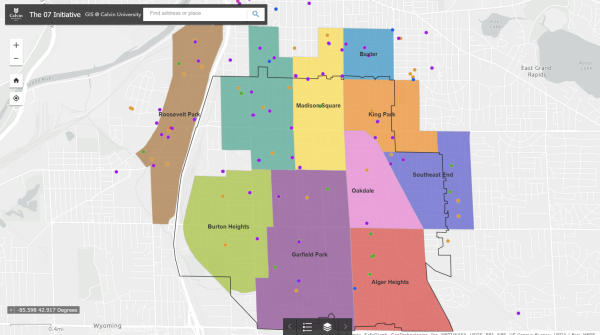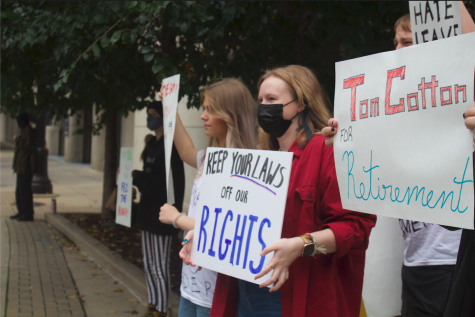Mayor Bliss and Governor Snyder respond to refugee ban
In a statement Tuesday, Grand Rapids mayor Rosalynn Bliss articulated her disappointment with the recent executive order halting refugee entry to the United States as well as travel to the U.S. for nationals of seven majority-Muslim countries.
Bliss said she is “disheartened” by the President’s actions and stated that the executive order “does not reflect the values of our community.”
In her statement, Bliss referenced Grand Rapids’ status as a “Welcoming City,” referring to the city’s membership since 2015 in Welcoming Michigan, a program that seeks to develop immigrant-friendly communities.
Welcoming Michigan’s core principles include recognizing that “immigrants are fellow human beings and reject[ing] the use of dehumanizing language,” and “promoting understanding of the contributions that immigrants make to the U.S. and the effects of immigration on our communities and to challenging common myths and stereotypes.”
“As a Welcoming City, we have expressed our cooperation, respect and compassion among all in our community, inclusive of immigrants and non-immigrants alike,” the mayor wrote. “I am proud that, as a community, we embrace and celebrate the fabric of our city and that we work together to ensure that Grand Rapids is an inclusive and welcoming place for everyone.”
It’s not clear what policy changes came with becoming a Welcoming City, since the pledge merely calls upon the city to “maximize opportunities” for immigrants to integrate and contribute to the city.
A Welcoming City is not the same as a Sanctuary City, the unofficial designation for cities that have ruled not to pursue the legality of their residents’ immigration status unless forced to.
Grand Rapids is not a “sanctuary city” like Detroit or Ann Arbor, though the city held a meeting in December 2016 to discuss becoming one.
Bliss did mention that the city “recently approved accepting all countries’ Consular Identification Cards as an official ID. This allows immigrants to open bank accounts, get library cards and sign up for utilities such as water service and trash removal.”
She ended her statement assuring the community that “the Grand Rapids Community Relations Commission is working on action plans for making our city more welcoming to immigrants.”
Governor Rick Snyder conveyed a vaguely positive reaction to the executive order in a statement also released Tuesday, Jan. 31.
Snyder called the ban a “120-day reassessment period,” language that other Republican leaders have favored, and said it “is leading to a much-needed national dialogue on immigration policy, and I plan to be part of that discussion.”
Snyder used language reminiscent of his call to stop advocating for refugee resettlement in Michigan in November 2015, taking a learning approach to the new orders.
“I plan to reach out to other governors and the presidential administration to completely understand the security processes and procedures in place and how the new executive orders might affect people trying to legally enter Michigan,” Snyder said.
Gov. Snyder, who has called himself “the most pro-immigration governor in the country,” in 2015 had proactively requested more visas from the federal government for legal immigrants, including refugees, to be settled in Michigan.
But later that year after the November terrorist attack in Paris, Snyder called for a “pause” in refugee resettlements to Michigan until he could be assured that there was an effective vetting process in place. His words set off a chain of statements by 22 other state governors asking to halt refugee resettlement in their states.
Despite Snyder’s statement, however, refugees have continued to be settled in Michigan and Grand Rapids over the past year and a half, until now.
In his statement Tuesday, Snyder put a positive face on immigration, attributing the “entrepreneurial culture” of the state to contributions of immigrants “who have settled here for generations.” He called Michigan “one of the most welcoming states for legal immigration and properly vetted refugees.”
But Snyder’s statement also set its tone with the opening line “I support safe and secure borders,” suggesting his policy priorities may align with Trump’s, despite his past record of advocating for refugee resettlement.







